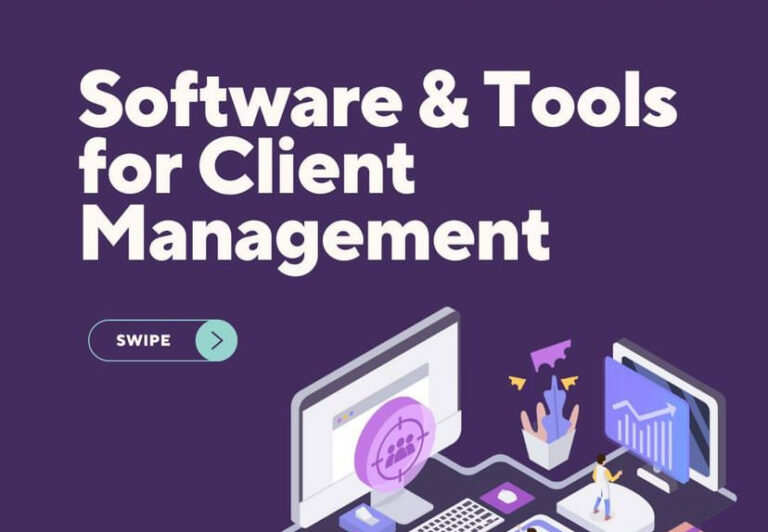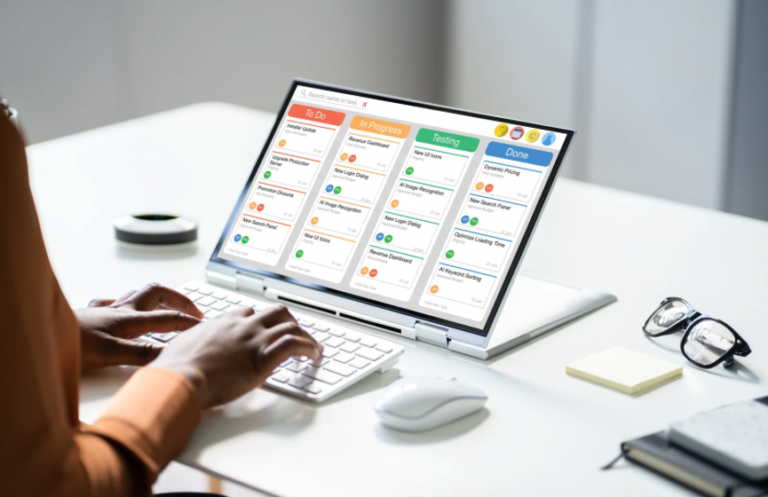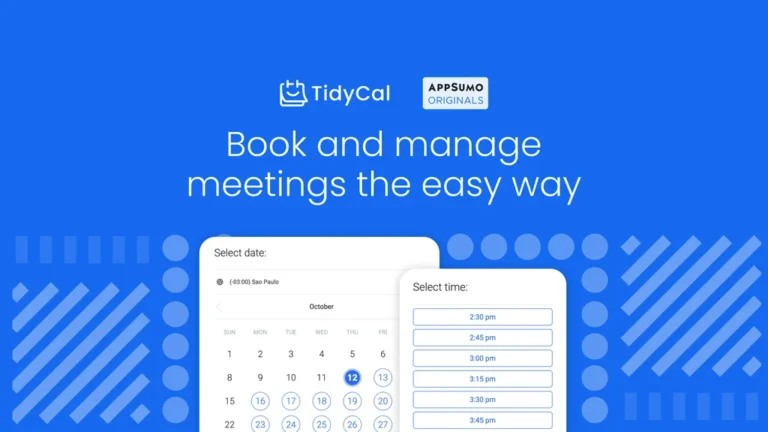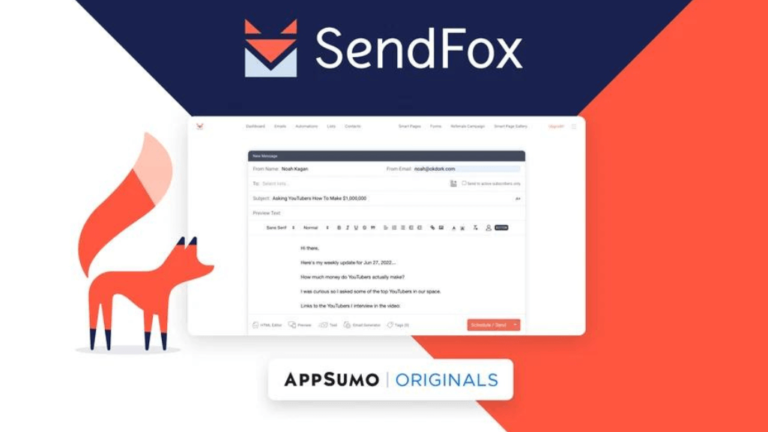What is the Best App to Keep Track of Clients?
Staying organized in business is not just a preference—it’s essential. Whether you’re managing a small group of clients or working with hundreds, keeping track of them efficiently is crucial for success. A good client management system can help you build stronger relationships, close more deals, and increase your productivity. The best way to achieve this? Using the right app to track your clients.
What is the Best App to Keep Track of Clients?
When it comes to client tracking, HubSpot CRM is widely considered the best app. It offers a powerful, all-in-one platform for managing client information, tracking deals, and staying organized. With features like email tracking, automated reminders, and meeting scheduling, it is suited for both small businesses and large enterprises.
HubSpot CRM makes tracking clients easy. You can add contacts, manage deals, and keep track of communications all in one place. It also integrates with Gmail, Outlook, and other tools you use daily, making it a seamless solution.
What sets HubSpot apart is its free plan, which includes most of the key features you need to get started with client tracking. As your business grows, you can scale up with additional paid features. This scalability makes it one of the most accessible options for businesses of all sizes.
However, HubSpot isn’t the only option. Several other apps cater to specific needs:
- Pipedrive: This app is excellent for managing sales pipelines and tracking contact history. If your business focuses heavily on sales, Pipedrive might be the perfect fit.
- Zoho CRM: Known for its customizable features, Zoho is great for businesses that need a flexible client management system. It offers robust reporting, automation, and integrations with popular tools.
- Salesforce: If you have a larger business with complex sales cycles, Salesforce is the go-to option. It’s powerful and highly customizable, but it can be overwhelming for smaller teams.
- Airtable: If you’re looking for flexibility in designing your client management system, Airtable allows you to build a custom setup without needing coding knowledge.
- ClickUp: Best for businesses that need to manage more detailed customer data and collaborate across teams, ClickUp also helps streamline client interactions.
These are just a few options, and the best app will depend on your unique business needs.
What Should You Look for in a Client Tracking App?
When selecting a client tracking app, there are a few key features you need to consider. These will ensure the app meets your needs and provides the functionality to streamline your processes.
Features to Prioritize
- Contact Management: At its core, the app must help you store and organize client information. A good app should allow you to create detailed client profiles, including contact details, notes, and interaction history.
- Deal Tracking: The app should help you manage sales pipelines and track where each client stands in the process. This will give you a clear view of what actions need to be taken and when.
- Task Management: Keeping track of tasks and reminders for each client is essential. A good app will allow you to assign tasks, set due dates, and automate reminders to ensure nothing slips through the cracks.
- Reporting & Analytics: Having data on how your clients are progressing can help you make better decisions. Look for an app that offers reports on client activity, deal status, and sales performance.
- Email Integration: Integrating your email with the app can streamline communication. This way, you can track client conversations, schedule follow-ups, and set reminders directly within the app.
Ease of Use
The best app for client tracking is one that’s easy to use. It should have an intuitive interface, a clean layout, and simple navigation. The easier it is to use, the more likely you’ll adopt it across your team.
If an app has a steep learning curve or is cluttered with unnecessary features, it can become frustrating. Choose a tool that you and your team can quickly learn and use efficiently.
Scalability
As your business grows, you need a tool that can scale with you. Can the app handle an increasing number of clients and deals? Does it offer higher-tier plans with additional features? Make sure the app can grow alongside your business, so you don’t outgrow it in the future.
Pricing Considerations
Lastly, pricing is an important factor. While many CRM apps offer free versions, those usually come with limited features. As your needs grow, you may have to upgrade to a paid version. Compare pricing plans to determine what fits your budget.
Consider how many users you need, what features you require, and whether the pricing aligns with the value the app provides. Free tools might be great to start with, but if you need more advanced features, paying for a plan can be worth the investment.
What Are the Best Free Apps for Client Tracking?
Many small businesses and startups need free apps that help them manage clients effectively without breaking the bank. Here are some of the best free apps that can help you get started:
- HubSpot CRM (Free Plan): HubSpot’s free CRM plan is one of the best available. It includes features like contact management, deal tracking, email tracking, and meeting scheduling, all without paying a dime. This makes it an excellent starting point for businesses looking to manage clients without any upfront cost.
- Airtable: Airtable’s free version allows you to create custom client databases with flexible templates. If you need a no-code solution for organizing client information, Airtable is an excellent choice.
- EngageBay: EngageBay’s free plan includes all-in-one CRM features with email marketing, lead scoring, and task automation. It’s a great option for businesses that want to manage clients and leads in one place.
These tools are perfect for businesses that are just starting or need a basic level of client management. They offer a great range of features and are easy to use, but you may need to upgrade to a paid plan as your business grows.
How Do You Keep Track of All Clients Effectively?
Keeping track of all clients can feel overwhelming, but with the right system in place, it’s much easier. Here are a few tips for managing clients effectively:
Centralize Client Data
Make sure all your client information is stored in one place. A CRM app is perfect for this. It keeps everything from contact details to past interactions in one easy-to-access location. This ensures you never lose track of a client and can always find the information you need.
Automate Follow-Ups and Reminders
Use automation to set reminders for follow-ups, appointments, or deadlines. This helps prevent anything from slipping through the cracks. Most CRM apps, including HubSpot and Pipedrive, offer built-in automation features that send reminders for tasks and meetings.
Regularly Update Client Profiles
As you interact with clients, make sure their profiles are up-to-date. Add new information, log communications, and update their status in the sales pipeline. This helps you stay informed and ensures that all team members have the latest client information.
Integrate with Other Tools
Integrating your CRM app with tools like your email, calendar, and task management apps can save you time. For instance, linking your email account to your CRM allows you to track client interactions directly within the app. This makes managing communication and scheduling much easier.
How Do CRMs Improve Client Relationships?
Client Relationship Management (CRM) systems are designed to strengthen your interactions with clients. Here’s how they improve client relationships:
Personalization
With a CRM, you can access detailed client histories, including past interactions, preferences, and buying behavior. This allows you to tailor your communications to each client’s specific needs, making them feel valued and understood.
Proactive Communication
CRMs help you stay on top of client interactions. With reminders for follow-ups and automated email sequences, you can proactively reach out to clients, ensuring that no one feels neglected.
Streamlined Sales Process
CRMs help you manage your sales pipeline, track deals, and monitor client status. By streamlining these processes, you can quickly identify which clients need attention and which deals are close to closing. This ensures that you don’t miss any opportunities.
FAQ Section
What is a CRM, and why do I need one?
A CRM (Customer Relationship Management) tool helps you manage and analyze customer interactions and data. It centralizes client information, making it easier to track deals, follow up, and improve your relationship with clients.
What’s the difference between free and paid CRM tools?
Free CRM tools typically offer basic features like contact management and email tracking. Paid plans unlock more advanced features such as custom reports, automation, and integrations with other business tools.
Can I use Excel to track clients?
While you can use Excel for basic client tracking, it lacks many CRM features like automation, reporting, and scalability. A dedicated CRM is a better option for growing businesses.
What’s the best app for small businesses?
For small businesses, HubSpot CRM and Airtable are great options. They’re both user-friendly, scalable, and offer free plans with key features that make client tracking easy.
Are there apps tailored for specific industries?
Yes, there are industry-specific apps. For example, Trainerize is ideal for fitness trainers, while Boomingo is great for managing client loyalty in salons.
Conclusion
Tracking clients is essential for business growth, and the right app can make all the difference. HubSpot CRM is widely regarded as the best choice due to its comprehensive features, ease of use, and scalability. However, depending on your specific needs, other apps like Pipedrive, Zoho CRM, and Salesforce may also be worth considering.
No matter which app you choose, ensure it helps you centralize client data, automate tasks, and keep track of deals. With the right tools in place, you can build stronger relationships with clients, close more deals, and grow your business efficiently.







